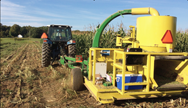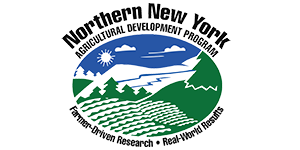
Farm Labor to Fireblight: 24 NNYADP-Funded Research Projects Underway in 2018
Northern NY: April 26, 2018. How labor issues impact Northern New York dairy farms is the focus of one of 24 research projects receiving grant funding through the farmer-driven Northern New York Agricultural Development Program and underway to help regional farmers weather climate extremes and economic challenges, capitalize on growth opportunities, and enhance land and water stewardship. The complete list of funded projects is posted under the About heading at www.nnyagdev.org.
 The farm labor evaluation is one of four dairy-focused projects with Northern New York Agricultural Development Program (NNYADP) funding in 2018; the other three are evaluating opportunities to increase milking parlor efficiency, enhance calf health, and help milking cows adjust to hot weather conditions.
The farm labor evaluation is one of four dairy-focused projects with Northern New York Agricultural Development Program (NNYADP) funding in 2018; the other three are evaluating opportunities to increase milking parlor efficiency, enhance calf health, and help milking cows adjust to hot weather conditions.
 Thirteen projects receiving NNYADP grants are designed to benefit field crop production, including through the use of yield monitoring technology to more accurately project corn yield potential and through the commercial-scale farm application of Cornell Soil Health assessment testing.
Thirteen projects receiving NNYADP grants are designed to benefit field crop production, including through the use of yield monitoring technology to more accurately project corn yield potential and through the commercial-scale farm application of Cornell Soil Health assessment testing.
Researchers supported by Cornell Cooperative Extension field crop specialists in cooperation with local on-farm trial hosts are investigating best management practices that will help regional farmers enhance production, yield and quality gain, pest management, and disease prevention in corn, alfalfa, grass and soybean crops.
One of the 2018 NNYADP-funded projects will add data to a Northeastern U.S. research collaboration focused on enhancing water quality protection. Project leader Dr. Quirine M. Ketterings of the Cornell University Nutrient Management Spear Program is part of a collaboration that is developing new Phosphorus Indexes for seven states. The index helps guide best management practices for manure and purchased nutrient application. Ketterings has credited Northern New York farmers and crop advisers for prompting the updating of a similar resource for nitrogen application guidelines for NY.
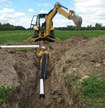 Two additional NNYADP-funded agricultural stewardship research projects are focused on the opportunity of tile drainage to improve both crop production and environmental conservation.
Two additional NNYADP-funded agricultural stewardship research projects are focused on the opportunity of tile drainage to improve both crop production and environmental conservation.
 With a new NNYADP grant for research in 2018-19, Cornell Maple Program specialists are measuring how the timing of tapping schedules by NNY maple producers impacts maple and birch sap yields.
With a new NNYADP grant for research in 2018-19, Cornell Maple Program specialists are measuring how the timing of tapping schedules by NNY maple producers impacts maple and birch sap yields.
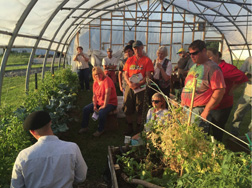
Northern New York fruit and vegetable growers are participating in projects centered on high tunnel season-extension production, opportunities for new fruit crops that can tolerate localized growing conditions, protecting apple crops from fire blight, and the use of thinning in apple orchards to optimize profitability.
“As a farmer-driven program with producers from all the agricultural sectors that brace the Northern New York economy, the Northern New York Agricultural Development Program is able to directly respond to farm-level and industry-level needs and opportunities,” said NNYADP Co-Chair Jon Greenwood, St. Lawrence County.
“The research done in Northern New York has developed groundbreaking solutions that are having far-reaching impact for the entire agricultural industry,” added NNYADP Co-Chair Joe Giroux, Clinton County.
“The localized on-farm research provides insights that apply directly to the challenges we face as Northern New York farmers and help us customize the best science based on our microclimates, soils, and farming practices to sustain and strengthen our agricultural economy,” noted NNYADP Co-Chair, Jon Rulfs, Clinton County.
Funding for the Northern New York Agricultural Development Program is supported by the New York State Senate and administered by the New York State Department of Agriculture and Markets. The results of past projects funded through the Northern New York Agricultural Development Program are posted on this website.
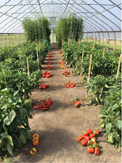
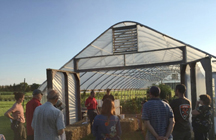
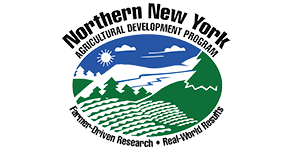 Northern NY; April 10, 2018. The 2018-19 New York State Budget includes $600,000 for the farmer-driven Northern New York Agricultural Development Program that prioritizes research and technical assistance to benefit the dairy, livestock, field crops, fruit, vegetables, maple and honey production industries in Clinton, Essex, Franklin, Jefferson, Lewis, and St. Lawrence counties.
Northern NY; April 10, 2018. The 2018-19 New York State Budget includes $600,000 for the farmer-driven Northern New York Agricultural Development Program that prioritizes research and technical assistance to benefit the dairy, livestock, field crops, fruit, vegetables, maple and honey production industries in Clinton, Essex, Franklin, Jefferson, Lewis, and St. Lawrence counties.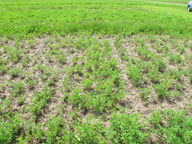
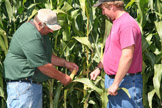 NNY Corn Grain Evaluation Helps Farmers Select Seed, Feed Cows, Sell to Ethanol Producers
NNY Corn Grain Evaluation Helps Farmers Select Seed, Feed Cows, Sell to Ethanol Producers